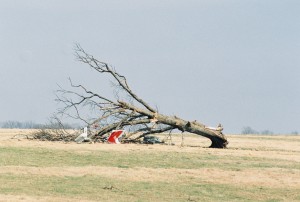 (This is an exerpt from the fifth chapter of my soon to be released book, Grappling with God: The Battle for Authentic Faith. This chapter emphasizes the importance of learning how to feel, express and process hurt and sadness.)
(This is an exerpt from the fifth chapter of my soon to be released book, Grappling with God: The Battle for Authentic Faith. This chapter emphasizes the importance of learning how to feel, express and process hurt and sadness.)
Those who sow in tears will reap with songs of joy.
— Psalm 126:5
The day Charlie left for the Navy, I thought I would die. I was five years old at the time and Charlie, who was fourteen years my senior, was more than a brother to me. He was a father figure, befriending me and playing with me, making up for what my father could not give me. The relationship between Dad and Charlie had always been contentious, so for my brother, enlisting in the Navy was a way of extricating himself from a painful dynamic.
As a young child, I could not understand what was happening or why. All I knew was that Charlie was leaving, and all his promises of seeing me again and sending me postcards meant nothing. All I knew was this aching loss I felt inside. As Charlie drove away, I stood in the driveway, waving long after his car was out of sight. I was inconsolable. This was a time when the support of a Christian counselor would have been so helpful.
My parents understood my sadness, but to their way of thinking all this crying and carrying on had to stop. My mother, perhaps uncomfortable with her own sadness over Charlie’s departure, eventually told me to stop feeling sorry for myself. With those words, the lights went out for me inside. Without the resources to understand and process what I was feeling, I did the only thing I could: I retreated within myself. There I was safe from feeling the hurt that struck me like a physical blow and the sadness over the loss of my brother from my day-to-day life.
Over the years, I added to my protective shell to guard against feeling my hurt and sadness. Better to deny those feelings, I decided, than ever be so vulnerable and exposed again. In time, I came to equate being sad with being weak and wallowing in self-pity. As a man, I saw stoicism and having a stiff upper lip as the way to be an adult. The irony is that by denying my hurt and sadness I was actually keeping myself locked in my childhood where I was an inconsolable five-year-old who felt abandoned. Only by opening myself up to the depth of my feelings—especially the ones that I equated with being lost, vulnerable, and exposed—could I become a fully functioning adult capable of having mature, intimate relationships with myself, with others, and with God.
Each of us as adults have children inside us who are longing to express themselves and complete their unfinished business. We all can benefit from having a safe place along with a competent and capable guide to help us in the process of expressing, completing and integrating the outstanding hurts from our childhood. Reach out to one of our trained and caring therapists at the Center for Christian Life Enrichment. We would love to join you on the journey to becoming our most Christ-like selves. Take advantage of the opportunity to become a part of a community of people who are living dynamic lives, feeling their feelings, expressing truth in the moment, and multiplying their talents in the service of others.
What a moving and authentic showing of your hurt and sadness. Great thoughts on unfinished business.
Thanks, Johnny for the encouragement and support.
Pingback: Why Can’t I Fix You? | Growing in Faith
Pingback: Never Give Up | Out of the Blue Blog
Pingback: Hope Deferred Makes the Heart Sick | Out of the Blue Blog